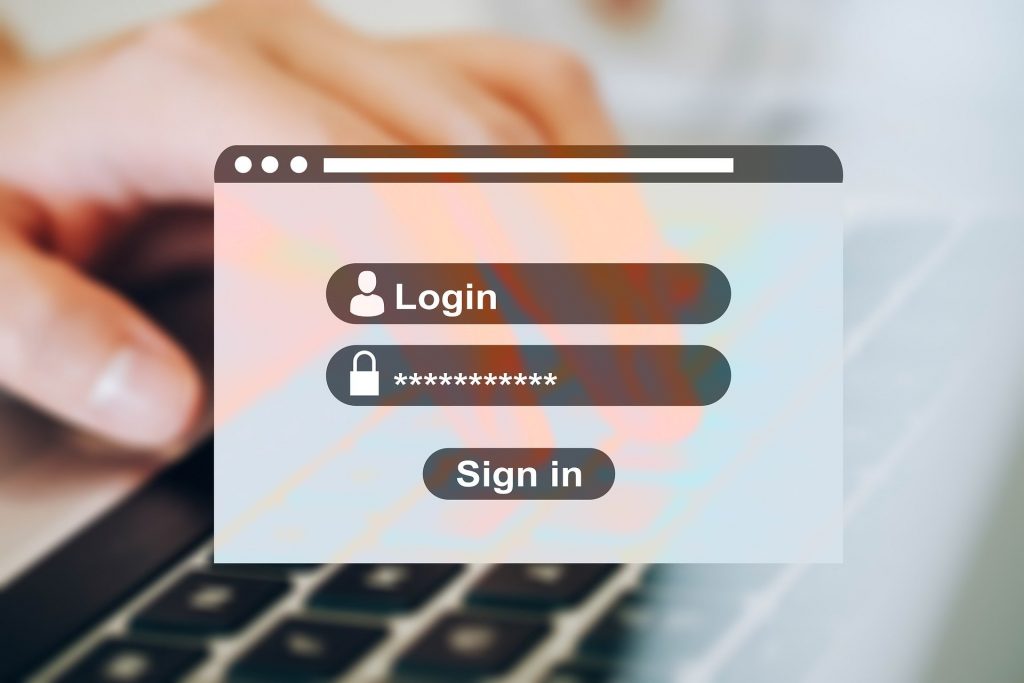Computers and internet access are now an integral part of our everyday lives. We use them not only for work, but also for private purposes. Whether it’s work-related documents, conversations with colleagues, friends and family, bank documents or the exchange of private photos; none of this should be visible to everyone.Whoever uses such technologies should also protect themselves. In order to protect yourself, an efficient password protection is essential.

Source: Pixabay
Strong passwords for more security
Passwords should therefore be particularly hard to crack. But what exactly is a secure password? And what should you avoid? In the framework of the prevention campaign “mach dein Passwort stark” (make your password strong), the State Criminal Police Office NRW (LKA) has published some tips on how to use secure passwords. We too would like to support this campaign! Below you will find a few tips on how you can ensure that your passwords offer the best possible protection.
1. It’s all about the right combination
Your password should consist of at least 10 characters. Ideally, the password should contain both upper and lower case letters as well as special characters and numbers. The following simple rule generally applies: the longer the better.
2. Remember it!
Let’s be honest! What is the point of a long password if you can’t remember it? First of all, you should never save your passwords in text files or write them down. Data can easily be stolen this way. You should rather try and figure out tricks to remember your password more easily. Have you ever considered using mnemonics to help you memorize your passwords? On their website, the LKA shows how such mnemonics could look like using various examples.
3. No personal information in passwords
Hackers collect data. All kinds of data are relevant and can be used in password theft. Passwords that contain dates of birth, names or similar are therefore considered particularly risky. So always make sure that your passwords do not contain anything personal.
4. Do not use the same password for all your profiles
Security vulnerabilities on websites can open loopholes for hackers. This can also lead to password theft. If you use the same password for all your accounts and profiles, hackers can easily gain access to all your accounts after password theft. However, if you use different passwords, at least your other accounts will remain secure.
5. Two-Factor Authentification (2FA)
This type of authentication has already become indispensable for online banking. But many other websites also include it: the two-factor authentication. This type of authentification simply is a double protection: when logging in, you will be first requested to enter your usual login data. In addition, you will then receive an additional access code, for example as an text message on your smartphone.
6. Change your passwords from time to time
In many situations the security of our own data does not solely lie in our own hands. Unfortunately, data theft cannot always be avoided. Large companies or even universities are often victims of cyber attacks. In such cases, personal information can be stolen and sometimes even leaked and sold to third parties. The leaked information can also contain outdated passwords. If you use the same password for 5 years, hackers at least have more opportunities to gather your data. The password should therefore be changed from time to time. Also, do not use passwords that you have already used in the past. However, if you change your passwords too often or are even forced to change them, you will tend to come up with simpler passwords. We strongly advise against this. You should therefore always try to find a healthy balance between changing your password too frequently and not changing it at all.
7. The Password Manager is your friend
Long passwords, different passwords, constantly changing passwords. That’s quite complicated! A possible solution can be offered by so-called password managers. Password managers are management programs for usernames and passwords. The manager works like a digital bundle of keys to which you can attach all your keys. All passwords are then protected by a single complex master password. All data is also encrypted. This means that you only have to remember one master password. Please be aware that no software is absolutely infallible. You can find more information about password managers on the website of the Federal Office for Information Security (BSI).
Nonetheless, one thing is sure when speaking about data security: badly chosen passwords are one of the main reasons for IT security vulnerabilities. Prevention campaigns such as those of the LKA are therefore important and more relevant than ever. So make sure you stay well informed and always keep the security of your data in mind.
Responsible for the content of this article is Stéphanie Bauens.




